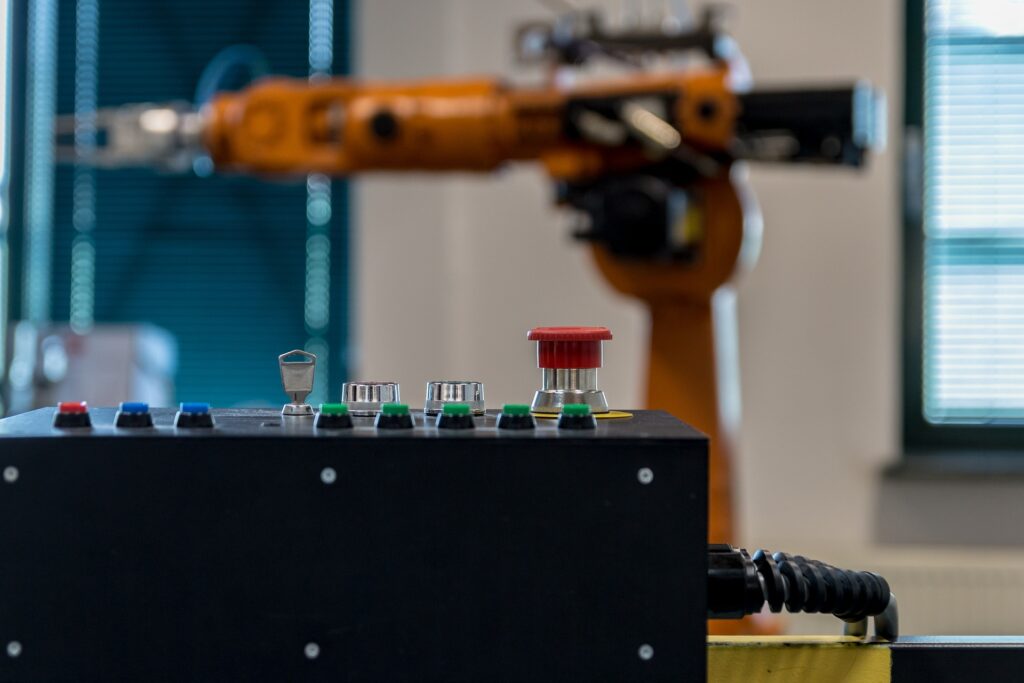The Arms Race for Trillion Dollars in Artificial Intelligence: Power, Profit, and the Struggle for Digital Dominance

The Arms Race for Trillion Dollars in Artificial Intelligence: Power, Profit, and the Struggle for Digital Dominance
The era of artificial intelligence is no longer a fantasy of the future; rather, it is the battlefield of the present day. Artificial intelligence (AI) research and development is receiving billions of dollars from governments, tech companies, and startups all around the world. How come? The reason for this is that the next frontier of power, influence, and economic leadership will not be characterized by oil or steel, but rather by algorithms, neural networks, and digital brains.
More than merely a competition to develop faster processors or more intelligent chatbots, this AI arms race is happening. The race to dominate the infrastructure of the future is taking place across a wide range of domains, including but not limited to combat, health, finance, education, and propaganda. We are going to go deeply into the rivalry that is driving our digital era, which is worth a trillion dollars.
AI Is the New Oil: Why the Stakes Are So High in This Competitor
Countries engaged in a struggle for control of natural resources during the 20th century. They are competing with one another for data and computational power in the 21st century. Artificial intelligence thrives on data; the more data you have, the more intelligent your systems will become. There are already some of the most powerful organizations in the history of the world that are companies that control data.
But data by itself is not sufficient. To train and execute the most powerful artificial intelligence models, massive expenditures in graphics processing units (GPUs), data centers, and bespoke circuits are necessary. In order to transform artificial intelligence into the digital equivalent of a nuclear arms race, nations and businesses are investing billions of dollars each year. This is because those who are in charge of AI have the potential to control not just industry but also world politics.
Google, Microsoft, Apple, Meta, and Amazon are all engaged in a war with one another.
The giants of technology are engaged in a full-scale conflict. Acquisitions of artificial intelligence companies, the development of huge language models, and the incorporation of AI into everything from search engines and productivity applications to healthcare diagnostics and virtual assistants are things that every major player is doing.
- Google is putting artificial intelligence (AI) at the forefront of everything it does, including its search engine, Android, and toolkits for workspaces.
- OpenAI is a close collaborator of Microsoft, and the company has integrated artificial intelligence (AI) copilots into Word, Excel, and even its operating system.
- Apple is discreetly working to improve on-device artificial intelligence by using privacy-focused strategies and sophisticated neural engines.
- Bets are being placed by Meta on the next step in the development of human-computer interaction by investing money in generative artificial intelligence, avatars, and the metaverse.
- Artificial intelligence is being weaponized by Amazon in the areas of retail analytics, Alexa, and AWS cloud solutions.
- These businesses are not just competing with one another on the basis of features; rather, they are engaged in a struggle for control of the digital ecosystem that the rest of the world will depend on.
There is a rise in geo-AI politics, and nations are joining the race.
There is no passive observation of the situation by governments. Countries such as China, the United States of America, and the European Union are making significant investments in their own artificial intelligence efforts. Artificial intelligence is playing a pivotal role in China’s long-term economic and military plans. The United States of America, on the other hand, considers the supremacy of artificial intelligence to be essential to both national security and the preservation of global leadership.
Export prohibitions, chip wars, and stringent controls on artificial intelligence technologies and computer gear have all resulted from this. The financial and geopolitical aspects of artificial intelligence are just as acute as one another. Artificial intelligence (AI) is rapidly becoming a technology that is employed in the military, namely in the areas of drones, surveillance, cyberdefense, and autonomous weapons systems.
Companies that are worth billions of dollars are not sitting on the sidelines.
There is a surge of agile and inventive businesses that are disrupting the market, despite the fact that Big Tech captures the majority of the focus. These upstarts are demonstrating that great ideas can still exist outside of corporate boardrooms—from open-source learning management systems (LLMs) to decentralized artificial intelligence and edge computing solutions.
There has been a record amount of money allocated to startups in the fields of artificial intelligence (AI), robotics, climate modeling, and creative tools. Investors are anxious to identify the next breakthrough model or platform, and venture cash is pouring into artificial intelligence at a rate that has never been seen before.
The quickness and concentration of startups are what make them a danger to the heavyweights in the industry. They have the ability to experiment more rapidly, make quick course corrections, and bring cutting-edge concepts to market with a startling degree of speed since they do not have to rely on outdated technologies.
Losers, winners, and the price of falling behind are all discussed.
As has been the case with every arms race throughout history, there will be victors and losers. Those that have control over the computing infrastructure, high-quality datasets, talent pipelines, and public trust will emerge victorious. It is possible that those that lose may find themselves economically marginalized, dependant on digital technology, and vulnerable geopolitically.
Small nations and businesses with little resources run the danger of falling behind if they do not embrace open AI technologies or build agreements with other organizations. The price of getting caught up could be too much to bear. If an economy is driven by artificial intelligence, even a little delay in adoption might result in long-term disadvantages, not just in terms of finances but also in terms of education, healthcare, and government.
At the Periphery of Ethics: The Competition Between Responsibility and Race
The absence of regulation and monitoring is one of the features of the artificial intelligence arms race that is the most worrying. Companies and governments that are in a haste to dominate the market often make sacrifices in terms of ethics, openness, and accountability.
Who makes the decisions on the use of AI? Who is responsible for the consequences when it is found to have discriminated, made a mistake, or caused harm? According to the warnings of a number of AI ethicists, if we do not construct AI systems with morals and guardrails, we run the danger of developing tools that are too strong to be controlled.
Regulation is now having difficulty keeping up with innovation, which has resulted in the creation of a hazardous gap that has the potential to lead to widespread monitoring, manipulation, and inequity.
What Lies Ahead: Is It Possible to Strike a Balance Between the Race and Responsibility?
Competition is the engine that drives innovation, thus the arms race in artificial intelligence is not intrinsically negative. Instead, we run the danger of allowing short-term profits to determine the long-term structure of humanity’s relationship with technology if we do not engage in collaborative efforts, maintain openness, and align our ethical standards.
For the sake of AI safety, we need worldwide accords. More people need to be aware of the potential dangers and benefits of artificial intelligence. In addition, we need a vision that is not just focused on power and wealth, but rather on the welfare of people.
The artificial intelligence weapons race, which is worth a trillion dollars, is shaping the future in terms of economics, politics, and society. During the next several decades, the decisions that are being taken now will have a significant impact on how we work, study, create, and even govern. Not only is this a trend in technology. It is the most important conflict that arises in the 21st century.




